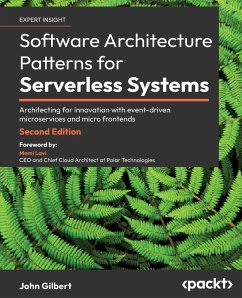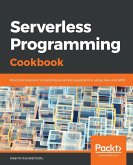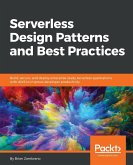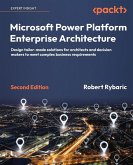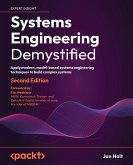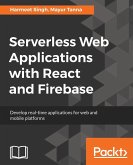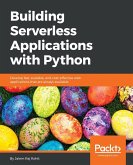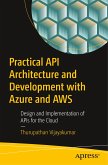Delve into the second edition to master serverless proficiency and explore new chapters on security techniques, multi-regional deployment, and optimizing observability.Key FeaturesGain insights from a seasoned CTO on best practices for designing enterprise-grade software systems Deepen your understanding of system reliability, maintainability, observability, and scalability with real-world examples Elevate your skills with software design patterns and architectural concepts, including securing in-depth and running in multiple regions. Book Description Organizations undergoing digital transformation rely on IT professionals to design systems to keep up with the rate of change while maintaining stability. With this edition, enriched with more real-world examples, you'll be perfectly equipped to architect the future for unparalleled innovation. This book guides through the architectural patterns that power enterprise-grade software systems while exploring key architectural elements (such as events-driven microservices, and micro frontends) and learning how to implement anti-fragile systems. First, you'll divide up a system and define boundaries so that your teams can work autonomously and accelerate innovation. You'll cover the low-level event and data patterns that support the entire architecture while getting up and running with the different autonomous service design patterns. This edition is tailored with several new topics on security, observability, and multi-regional deployment. It focuses on best practices for security, reliability, testability, observability, and performance. You'll be exploring the methodologies of continuous experimentation, deployment, and delivery before delving into some final thoughts on how to start making progress. By the end of this book, you'll be able to architect your own event-driven, serverless systems that are ready to adapt and change.What you will learnExplore architectural patterns to create anti-fragile systems. Focus on DevSecOps practices that empower self-sufficient, full-stack teams Apply microservices principles to the frontend Discover how SOLID principles apply to software and database architecture Gain practical skills in deploying, securing, and optimizing serverless architectures Deploy a multi-regional system and explore the strangler pattern for migrating legacy systems Master techniques for collecting and utilizing metrics, including RUM, Synthetics, and Anomaly detection. Who this book is for This book is for software architects who want to learn more about different software design patterns and best practices. This isn't a beginner's manual - you'll need an intermediate level of programming proficiency and software design experience to get started.You'll get the most out of this software design book if you already know the basics of the cloud, but it isn't a prerequisite.Table of ContentsArchitecting for Innovations Defining Boundaries and Letting Go Taming the Presentation Tier Trusting Facts and Eventual Consistency Turning the Cloud into the Database A Best Friend for the Frontend Bridging Intersystem Gaps Reacting to Events with More Events Running in Multiple Regions Securing Autonomous Subsystems in Depth Choreographing Deployment and Delivery Optimizing Observability Don't Delay, Start Experimenting
Hinweis: Dieser Artikel kann nur an eine deutsche Lieferadresse ausgeliefert werden.
Hinweis: Dieser Artikel kann nur an eine deutsche Lieferadresse ausgeliefert werden.

